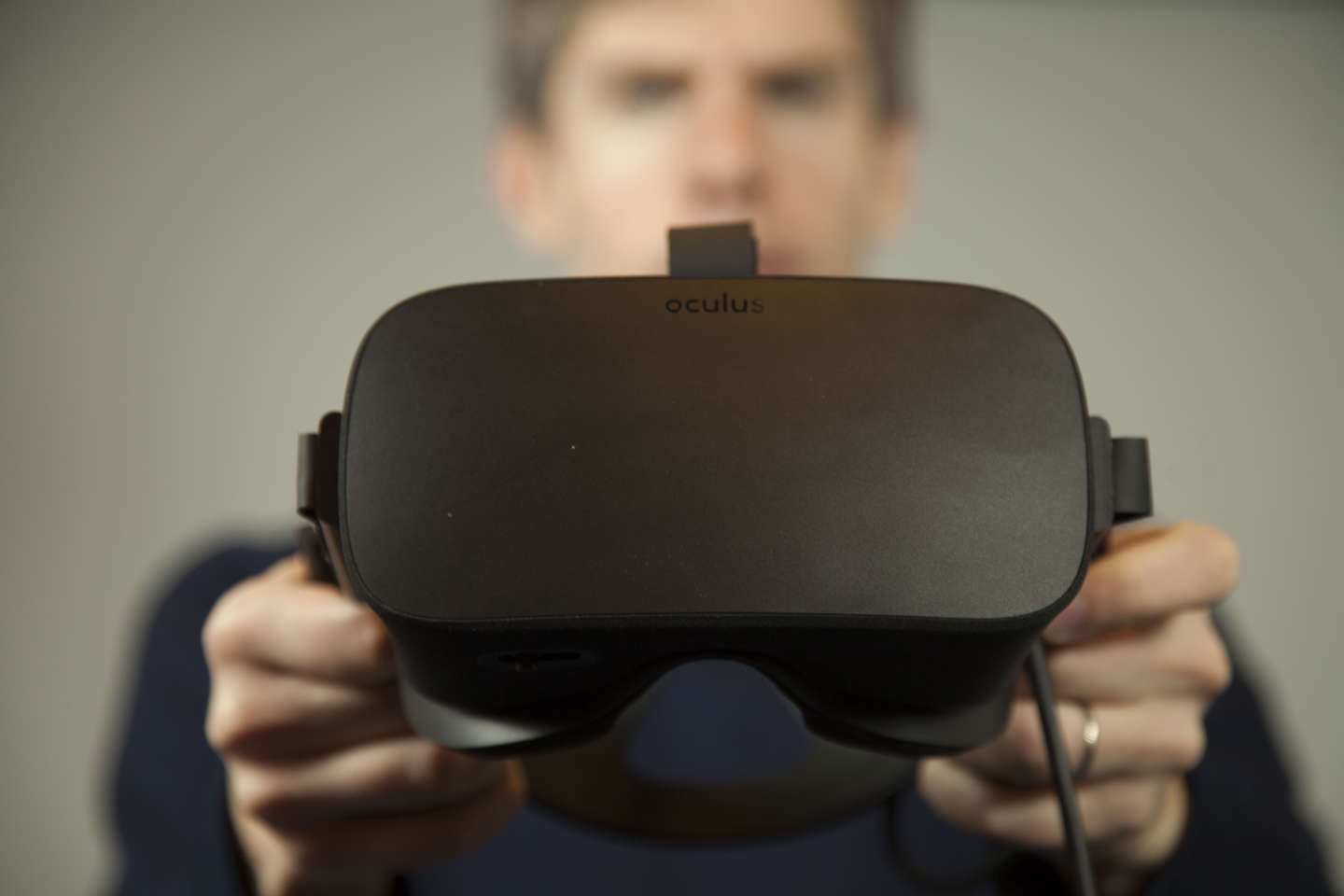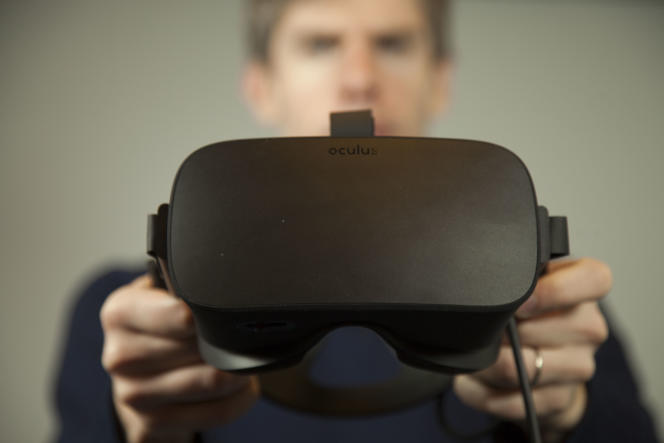Mark Zuckerberg on the stand to defend the designer of virtual reality headsets Oculus

 The Oculus Rift is a virtual reality headset released in March 2016. PIERRE TROUVÉ / THE WORLD
The Oculus Rift is a virtual reality headset released in March 2016. PIERRE TROUVÉ / THE WORLD
Mark Zuckerberg testified, Tuesday, January 17, in a high-risk trial for Facebook. At the helm, the founder and CEO of the social network rejected the accusations aimed at Oculus, the specialist in virtual reality headsets bought in early 2014 for $ 2 billion (1.87 billion euros). This one is accused by the American company ZeniMax of having stolen some of its technologies from him.
“Oculus products have been designed with Oculus technologies,” assured Mr. Zuckerberg, questioned for more than two hours before a court in Dallas (Texas). “When you announce a major transaction, it is relatively common to see people coming out of the woods and demanding their share,” he added. Like the majority of people here, I had never heard of ZeniMax before this case. »
Read also For Oculus, the future of virtual reality “is not necessarily the video game”
ZeniMax filed a lawsuit in May 2014, two months after Facebook acquired Oculus. The trial opened on Monday, January 9 and is expected to end next week. The company, which owns several video game development studios, believes that it has been the victim of “one of the biggest technological heists in history”. She is thus seeking up to $2 billion in compensation.
Collaboration then recruitment
The facts date back to 2012. At the time, Oculus was still just a small start-up that had just raised $2.4 million on KickStarter, a crowdfunding platform, in order to manufacture a virtual reality headset. To design a first prototype, its founder, Palmer Luckey, barely 19 years old, approached John Carmack, a historical figure in video games at the head of one of ZeniMax’s studios.
Read also Palmer Luckey, “Mr. virtual reality” and political anomaly of Silicon Valley
For several months, the two men collaborated to demonstrate the potential of virtual reality, a technology that has fallen into oblivion after the many failures encountered in the 1990s, especially by Nintendo. The first demonstrations of the helmet arouse enthusiasm. In 2013, the young company raised more than $90 million from venture capital funds. The same year, Mr. Carmack was recruited by Oculus as Technical Director.
“Mr. Carmack made major modifications to the prototype using research conducted previously in ZeniMax offices, on ZeniMax computers and using ZeniMax resources,” the complainant argues. Interviewed last week, the manager admitted that he had taken thousands of lines of computer code with him when he left. “I shouldn’t have done that,” he conceded. But Mr. Carmack also indicated that he had not reused these lines of code at his new employer.
“An unnecessary litigation”
According to ZeniMax, Facebook is also held responsible, blaming it for rushing the takeover. This one was concluded in just three days even though a leader of the social network had expressed his doubts about the statements of Oculus officials. Facebook thus did not take note of a letter that ZeniMax had sent a month earlier to the start-up to threaten it with legal proceedings.
Read also We tested… the games of the Oculus Touch, the new controllers of the virtual reality headset
“Going fast increases our chances of conducting an operation and allows us to avoid paying much more,” Mr. Zuckerberg replied, highlighting the competition from other large technology companies. The boss of the Californian group also revealed that the overall amount of the transaction actually amounted to $ 3 billion. an additional 700 million has indeed been paid to retain the main Oculus employees. The start-up also received an additional $300 million after achieving several goals.
For Facebook, ZeniMax’s approach is “an unnecessary litigation to try to take credit for a technology that it did not have the vision, expertise and patience to develop”. The social network recalls that the complainant did not follow up on a proposal for investments in Oculus. “They feel humiliated for not having invested in virtual reality when they had the opportunity,” the Facebook lawyer assented.
Read also Sony closes one of its virtual reality studios








